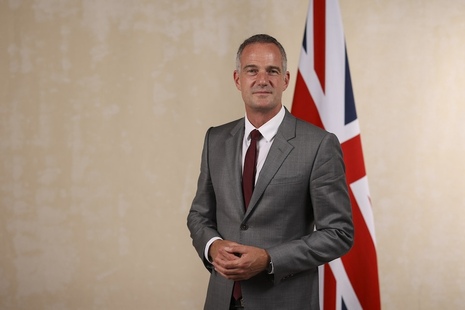Labour manifesto – the OBN perspective
The new Labour Government’s manifesto has, like any political party in its honeymoon period, much to be applauded. It’s mission-based approach with their five clear mission targets is logical. Here at OBN we summarise the pledges and the strategy looking very single-mindedly through the life sciences lens and at the key people in the DSIT who are tasked with implementing the new Government’s promises.
Mission-led approach
The approach is clear, and three foundations are cited as critical to be able to deliver these missions. Of the three (national security, secure borders and economic stability) the latter is critical to life sciences. Labour plans to upweight the role of the OBR and pay particular heed to its guidance.
Two of the five missions are pertinent to the life sciences sector.
- Kick-start the economic growth:
- Build an NHS fit for the future
Looking deeper into the economic growth aspiration reveals some interesting insights that could well be supportive of the life science sector. The Government plans to forge strategic partnerships through their industrial strategy.
“Labour will take a sectoral approach and be clear-eyed about where the UK enjoys advantages over other countries. Our approach will back what makes Britain great: our excellent research institutions, professional services, advanced manufacturing, and creative industries. We will ensure a pro-business environment, with a competition and regulatory framework, that supports innovation, investment, and high-quality jobs.”
Further they focus on the need for boosting investment and are rumoured to be considering deepening the Conservatives’ Mansion House Compact which promised to deliver 5% of UK pension funds into unlisted business by 2030.
Looking at business taxation the new Government will cap corporation tax at current levels for the entire parliament, undertake a single fiscal event each year (to allow better planning), and:
“We will retain a permanent full expensing system for capital investment and the annual investment allowance for small business. And we will give firms greater clarity on what qualifies for allowances to improve business investment decisions.”
The latter presumably relates to R&D Tax Credits and so potentially we may see change in the Chancellor’s autumn statement (which is expected in October).
Looking at driving innovation, the new Labour government wants to “make Britain the best place to start and grow a business.” To do so they will support AI and create a new National Data Library, bring together existing research programmes and will scrap short funding cycles for key R&D institutions in favour of ten-year budgets that allow meaningful partnerships with industry. They will also create a new Regulatory Innovation Office, bringing together existing functions across government to help regulators update regulation and speed up approval timelines.
Particularly encouraging for start-ups is their promise to:
“…work with universities to support spinouts; and work with industry to ensure start-ups have the access to finance they need to grow.”
Department for Science, Innovation & Technology
Key to the enablement of these plans are the new Ministers within the DSIT. The department’s first press release was titled: “DSIT bolstered to better serve the British public through science and technology.”
Whilst the emphasis here is more on serving the public than industry, the focus is understandable in terms of winning the hearts and minds of the public.
Here we look at the two key people within the department who will be tasked by Government in delivering for UK life sciences.
Peter Kyle, MP. Secretary of State for Science, Innovation and Technology

(Source: https://www.gov.uk/government/people/peter-kyle)
A relative newcomer to the sector, Peter Kyle has served in opposition since 2015 in roles ranging from shadow minister for victims & youth justice, schools and Northern Ireland before becoming shadow Secretary of State for Science, Innovation and Technology in September last year.
In his first week the new Secretary of State said that his department “..will act as a leader and partner across government, with industry and the research communities, to boost Britain’s economic performance and power up our public services to improve the lives and life chances of people through the application of science and technology.”
Under his leadership DSIT will be expanded in both size and scope bringing in experts in data, digital and AI.
His most well-known appointment was Patrick Vallance.
Lord Patrick Vallance, Minister of State for Science, Research and Innovation

(Source: https://www.gov.uk/government/people/patrick-vallance)
This was a significant and heavy-hitting appointment and one that should serve the sector well. Lord Vallance spent time in basic scientific research and in the NHS, (as a medic & lecturer), before joining industry where he served for over a decade in GSK in roles focused on drug discovery and development (meaning he understands the world of early life sciences). He then went on to serve in Government as Chief Scientific Advisor through the pandemic. His remit covers:
- Domestic science and research ecosystem, including Public Sector Research Establishments (PSREs)
- International science and research, including space science
- Horizon Europe
- R&D
- Life sciences
- Quantum, engineering biology and semiconductors
- Advanced Research and Invention Agency (ARIA)
- Government Office for Technology Transfer (GOTT)
- UK Research and Innovation (UKRI)
- Tech and innovation across the missions
- Regulatory Innovation Office
Lord Vallance recently met his counterparts across the G7 and declared UK science and technology very much “open for business.”
Summary
The UK political & fiscal landscape has changed hugely over the last five years. The next five should, at least, offer a sustained period of (at least political leadership) stability and in stable environments businesses can plan. If they can plan, they can execute.
As the financial volatility eases and the expectation of investment and deal-flow improves the outlook for UK life sciences looks more promising. We watch this space eagerly, (especially since the Chancellor has “discovered” a £20bn black hole last week), but the early signs are positive.






